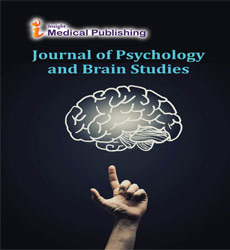The Translation of Knowledge: An Emerging Challenge in Clinical Practice
Master in School Health, Lisboa School of Nursing, Unit of Development and Research in Nursing, Portugal
- Corresponding Author:
- Cristina Lavareda Baixinho
Master in School Health
Lisboa School of Nursing
Unit of Development and Research in Nursing, Portugal
Tel: (351) 933254269
E-mail: crbaixinho@esel.pt
Received Date: May 23, 2017; Accepted Date: May 24, 2017; Published Date: May 31, 2017
Citation: Baixinho CL. The Translation of Knowledge: An Emerging Challenge in Clinical Practice. J Psychol Brain Stud. Vol. 1 No. 2:13
Copyright: © 2017 Baixinho CL, et al. This is an open-access article distributed under the terms of the Creative Commons Attribution License, which permits unrestricted use, distribution, and reproduction in any medium, provided the original author and source are credited.
Abstract
The evolution of science and the development of knowledge have brought enormous contributions to society, allowing a profound change in all domains of human existence. If we question someone about the areas where knowledge has most developed, the answer will likely include the areas of technology, because we are regularly confronted with more and better equipment, software and (social) networks that modify not only how we use them, but also how we see the new information and communication technologies.
The evolution of science and the development of knowledge have brought enormous contributions to society, allowing a profound change in all domains of human existence.
If we question someone about the areas where knowledge has most developed, the answer will likely include the areas of technology, because we are regularly confronted with more and better equipment, software and (social) networks that modify not only how we use them, but also how we see the new information and communication technologies.
Health has also created a lot of knowledge, with clear translations in the improvement of the quality of life of the populations and in the increase of the average life expectancy, however society has not perceived this contribution in the same way that it has managed to do in other areas, and this lower visibility is a challenge to researchers.
We can consider that the transfer of knowledge has been a concern, using different strategies to reach it, from problem solving models to evidence-based practice, among others, but we reinforce the idea of Baumbush and other researchers, when they say that this are linear and unidirectional models, to passively pass information from researchers to users [1,2].
The evolution of research has to be accompanied by models of the translation of knowledge so that in the design of the study it is contemplated that from the creation to the application of research results, it is necessary to produce beneficial results for society. This challenge implies a paradigmatic change in research and researchers that must predict how they apply, disseminate and make clear to their knowledge beneficiaries that it is useful and can positively influence their health, by enabling them to manage their health/disease process.
This is also a shift to health care providers as consumers and producers of science. If, on one hand, technological and scientific advances produce new knowledge, technologies and techniques that have to be appropriated by professionals, on the other hand, the production of "useful" knowledge to solve the complex problems faced by professionals in their Daily practice has to be carried out "in loco" in the contexts where this practice happens.
Despite search engines and easy access to databases by all professionals, access to research results and their introduction into clinical practice takes some time. In this way, this use is slow and sometimes obsolete, making innovation in the provision of health care more difficult [3].
The central question of health costs and the sustainability of the Health System, allowing more to be done with lower resources, can not be alien to research and a certain social justice associated with it, identifying new models for care. This need to contain costs involves a "transfer" of knowledge and skills to empower family members to continue the health care they need after discharge.
Although it seems to be a cliché several times referenced by professionals, politicians and health economists, it is important to list some variables that complicate this panorama such as: population aging, increase in chronic diseases, number of people with disabilities, functional decline and dementia. These variables are changing the morbidity profile of the population and consequently challenge professionals to new ways of doing, in order to empower people for the health-disease processes they are experiencing.
This look at knowledge and its use by the beneficiaries implies a deep reflection on research in the field of psychology and neurosciences and on how we do, disclose and work with clinicians to make the results of our research "quickly" useful, but discarding "fast science".
In this editorial I leave you the challenge of decentering ourselves from knowledge and moving to the know-how, putting the knowledge where it should be – at the service of patients and community.
References
- Baumbusch JL, Kirkham SR,Khan KB, Mc Donald H,Semeniuk P, et al. (2008) Pursuing Common Agendas: A collaborative model for knowledge translation between research and practice in clinical settings. Res Nurs Health 31: 130-140.
- Pearson A, Jordan Z, Munn Z (2012) Translational science and evidence-based healthcare: a clarification and reconceptualization of how knowledge is generated and used in healthcare. Nurs Res Pract 2012: 792519
- Oelke ND, da Silva Lima MA, Acosta AM (2015)Knowledge translation: Translating research into policy and practice. Rev GaúchaEnferm 36: 113-117.
Open Access Journals
- Aquaculture & Veterinary Science
- Chemistry & Chemical Sciences
- Clinical Sciences
- Engineering
- General Science
- Genetics & Molecular Biology
- Health Care & Nursing
- Immunology & Microbiology
- Materials Science
- Mathematics & Physics
- Medical Sciences
- Neurology & Psychiatry
- Oncology & Cancer Science
- Pharmaceutical Sciences
